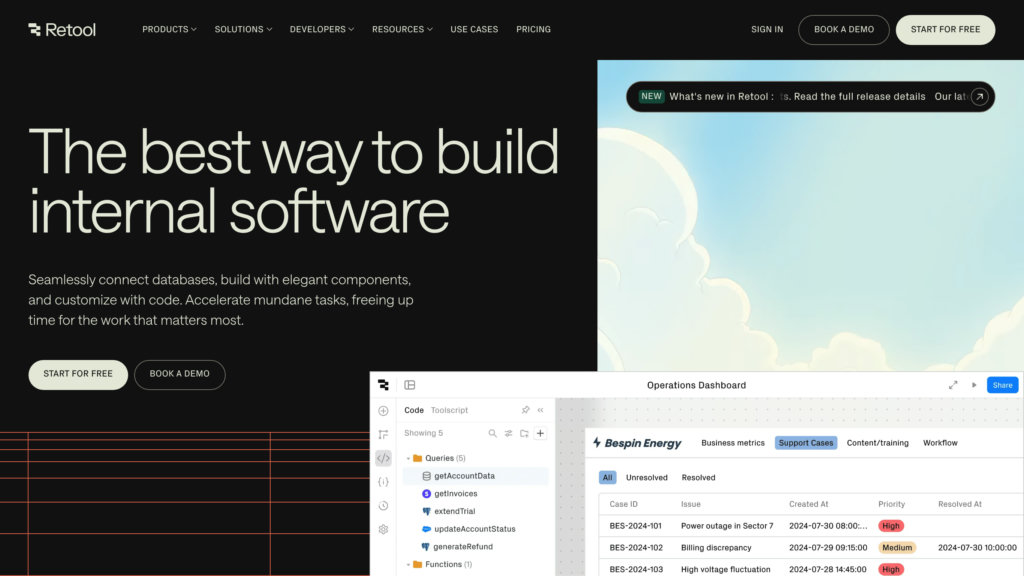Introduction
What is Retool?
Retool is an advanced low-code platform that supercharges the development of custom internal business software. It allows users to quickly assemble tailored applications—from admin interfaces and dashboards to automated workflows—by connecting to a vast ecosystem of over 70 data sources, including databases, APIs, and cloud services. Blending an intuitive drag-and-drop builder with the power to inject custom code, Retool delivers unparalleled adaptability, letting you craft apps that fit your exact operational requirements. It boasts robust enterprise security measures like single sign-on (SSO), detailed role-based access controls, and comprehensive audit logs, making it a trusted choice for organizations of any scale, from agile startups to large corporations.
Key Features
Flexible Deployment Models
Choose to host applications on Retool's cloud infrastructure or deploy them on-premises, offering complete authority over your data and IT environment.
Workflow Automation and Scheduling
Streamline operations by setting up automated workflows that can be scheduled or triggered to manipulate data, invoke APIs, and connect disparate systems.
Drag-and-Drop Builder with Pre-Designed Components
Accelerate frontend development with a rich library of over 100 ready-to-use UI elements like tables, forms, charts, and navigation bars.
Support for Custom Code
Extend functionality and logic using JavaScript, SQL, and Python, enabling sophisticated customization that goes beyond standard no-code capabilities.
Broad Data Source Connectivity
Easily integrate with numerous databases (e.g., MySQL, PostgreSQL, MongoDB), APIs, and cloud storage solutions to build dynamic, data-centric applications.
Enterprise Security and Compliance
Ensure safe deployment with features including SSO integration, granular permissions, audit trails, and adherence to SOC 2 Type II standards.
Use Cases
AI-Enhanced Applications: Incorporate large language models and AI-driven workflows to develop smart applications that boost automation and insights.
Partner and Vendor Portals: Construct secure, branded portals for external collaborators, providing controlled access and tailored user experiences.
Inventory and Equipment Management: Develop real-time apps for tracking inventory and managing machine maintenance to optimize resources and reduce downtime.
Customer Service Management: Centralize customer information, handle support tickets, and integrate payment systems to improve service efficiency.
Admin Panels and Internal Dashboards: Create dependable and secure interfaces for internal teams to oversee and manage critical business operations.
